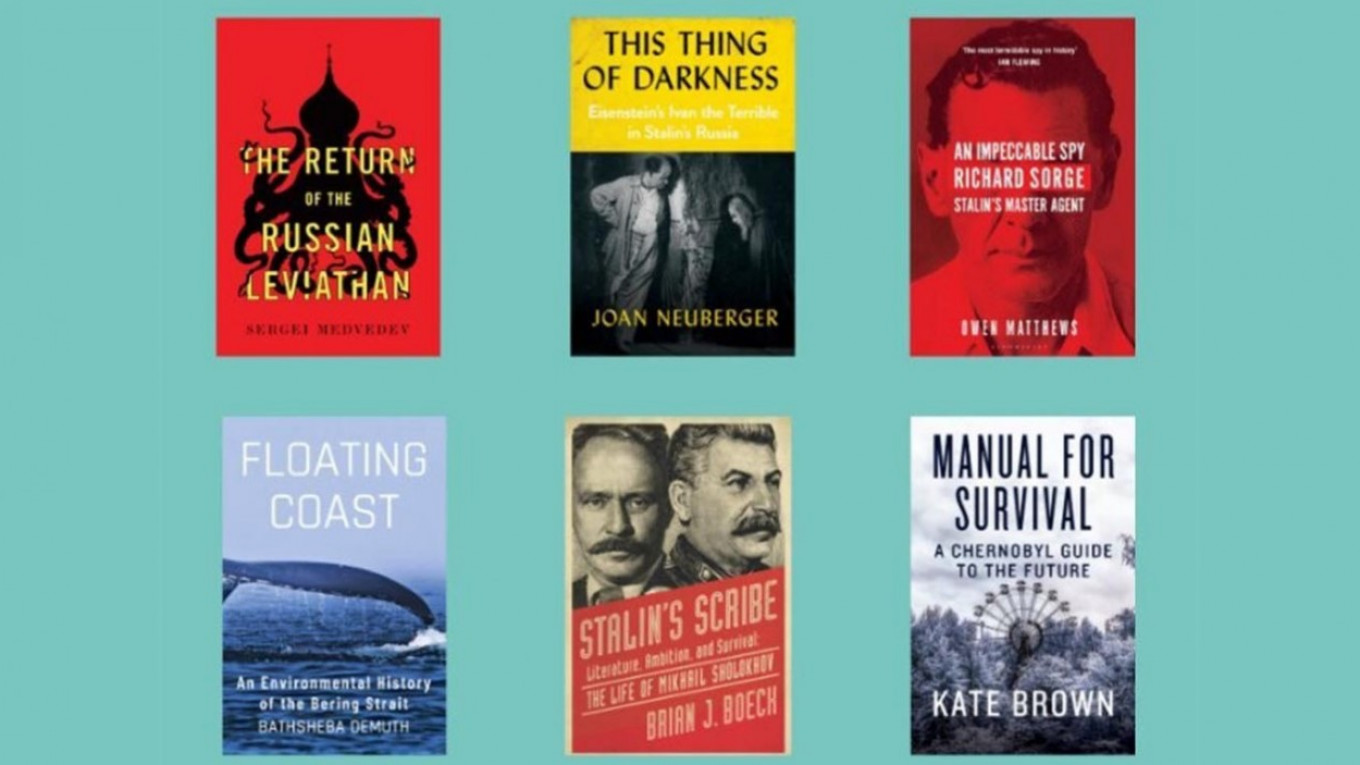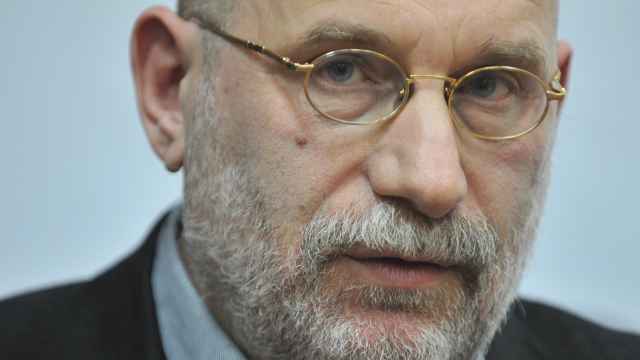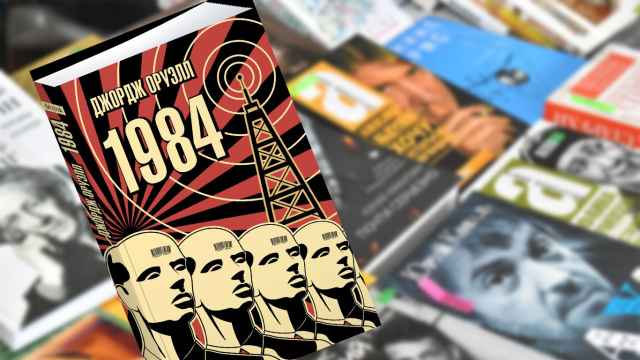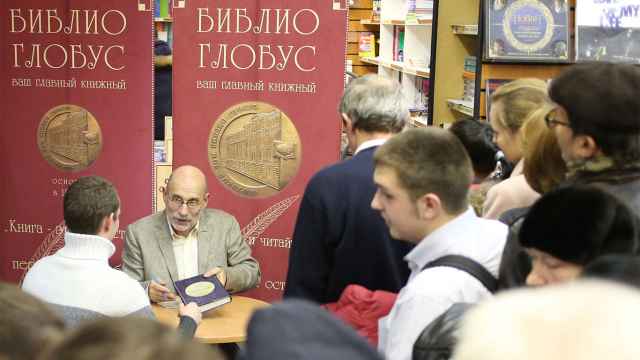Each year, the panel of judges of Pushkin House’s annual Book Prize considers 80-100 non-fiction books about Russia published in the previous year. Their daunting task is to choose from this list just six finalists for the Pushkin House’s coveted Book Prize, which will be awarded for the eighth year this autumn.
This year’s shortlisted authors are a diverse group of Russian, American, and British authors, academics, and journalists, and each has created a book which Serhii Plokhy, this year’s Chair of the Judges and author of last year’s winning “Chernobyl” notes “are books that represent a wealth of knowledge about the region — books published in the last year but years and years of work went into them.”
The judges are under no instructions to pick a common theme among the shortlisted works, beyond that of a work of non-fiction about Russia. In its eight-year history, the Pushkin House Book Prize has gone to authors who tackle subjects as diverse as the fate of Russia’s nobility (Douglas Smith’s “Former People”); the history of Russian painting (Rosalind P. Blakesley’s “The Russian Canvas”); and harrowing first-person accounts of the Siege of Leningrad (Alexis Peri’s “The War Within”). Close consideration of this year’s six finalists, however, reveals a clear common theme: the dangers of authoritarianism and the tragic consequences visited upon its victims.
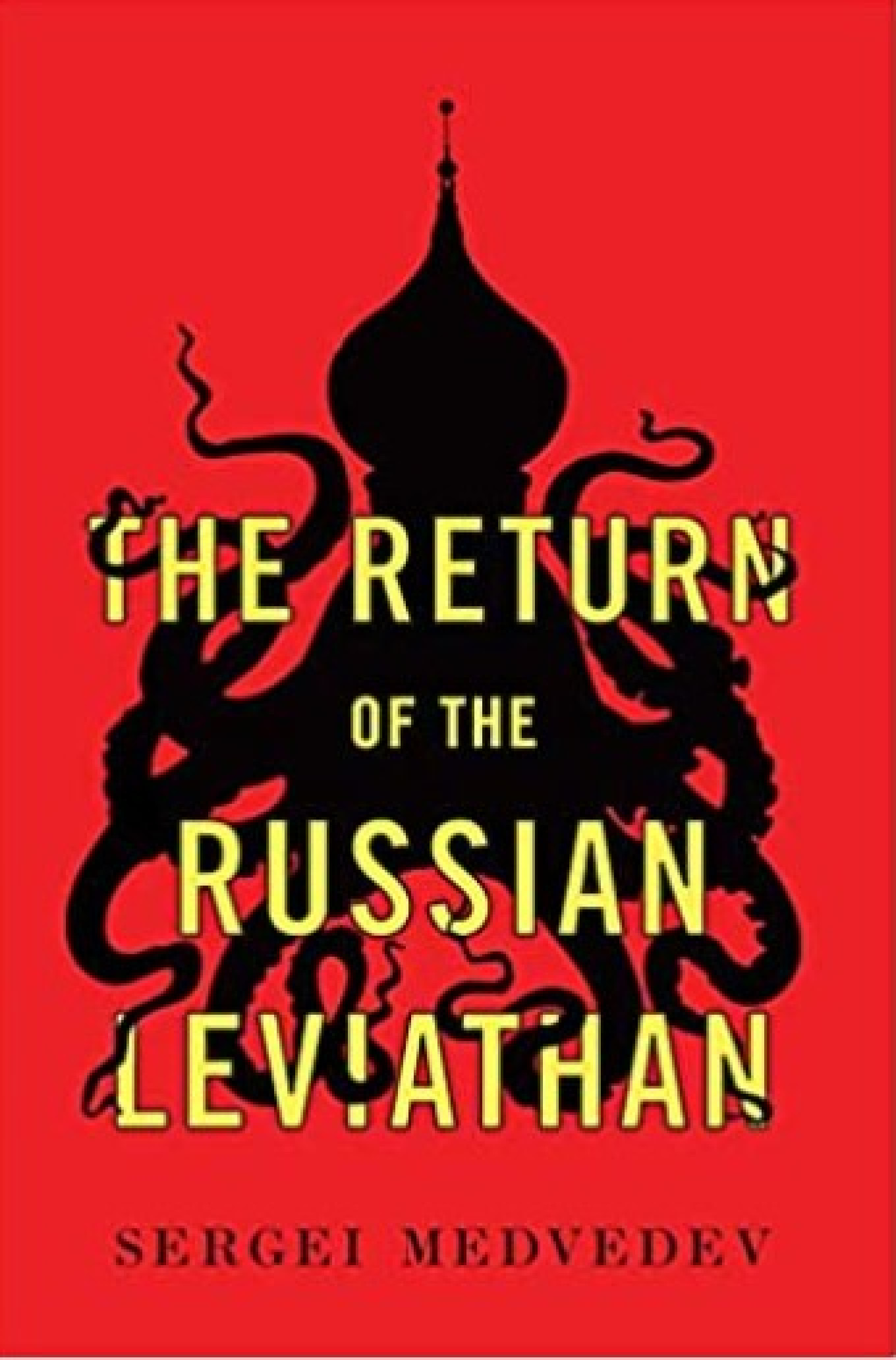
Sergei Medvedev’s “The Return of the Russian Leviathan” (Wiley and Polity) offers the most overt examination of this central theme of the perils of authoritarianism. It is astute, eminently readable, thanks to a masterful translation by Stephen Dalziel, and breathtakingly bold, when one considers that Medvedev is still living and working in Russia as a Professor at Moscow’s Higher School of Economics. “The Return of the Leviathan” sets out to explore the roots of Russia’s recent rise in nationalism. The book is a collection of short, taut, and thought-provoking essays on topics as diverse as Russia’s botched campaigns in Syria to Igor Shuvalov’s cosmopolitan corgis. The essays are curated from Medvedev’s columns for Vedomosti, Republic, and Russian Forbes, each one a masterful fusion of Medvedev’s deep knowledge of the past and his unflinching observation of the present.
Medvedev organizes his essays into four sections, designating each a “war” he sees the state waging on itself. “The War for Space” considers everything from city squares to Black Sea peninsulas. “The War for Symbols” looks at the complete annexation of patriotic tropes by the State. In the chilling “War for the Body,” Medvedev observes that, “the authorities are poking their noses into places that were previously considered the domains of our private lives: the bathroom, the bedroom, the kitchen — even looking in the fridge — and trying to regulate our bodily functions, disguising this as a battle for demographics and a claim of a sort of Russian ‘sexual sovereignty.’”
“The War for Memory” laments the State’s wholesale appropriation of Russia’s history, most notably in the macabre elevation of World War II to a non-negotiable crusade against evil and the steady rehabilitation of Stalin as the prototype of a “strong” Russian leader.
For more information, see the publisher's site here.
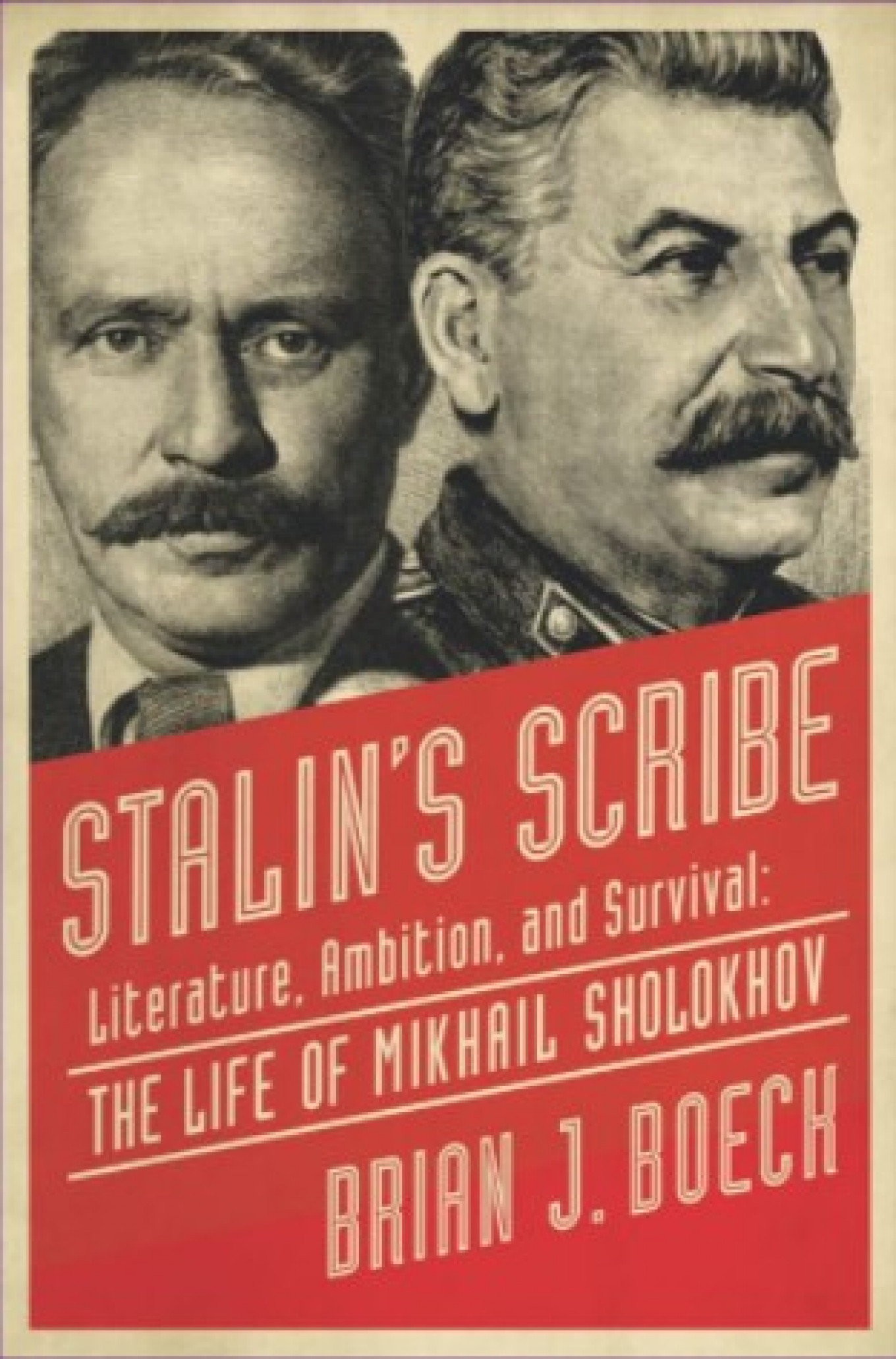
Stalin dominates the narrative in two other books on the short list, which delve into the challenges of living a creative life in an authoritarian state.
Brian Boek’s “Stalin’s Scribe, Literature, Ambition, and Survival: The Life of Mikhail Sholokhov” (Pegasus) is a political biography of Mikhail Sholokhov, one of Russia’s more controversial authors, whose 1965 Nobel Prize for Literature has always been tarnished with accusations of plagiarism about his greatest work, “Quiet Don” and its sequel “The Don Flows Down the Sea.” These sweeping novels brought the colorful lives of the Don Cossacks to vivid life on the page for millions of Soviet citizens, but for years, Boek argues, Sholokhov was writing for an audience of just one: Josef Stalin.
Boek is adamant that his is a political, not a literary biography; he considers the claims of plagiarism — that Sholokhov found a half-completed novel by a dead Civil War officer and used it as the basis for the characters and plot in “Quiet Don,” — but the real nail-biting intensity of the book is the decades-long game of cat and mouse Stalin plays with Sholokhov. Sholokhov’s struggles to create “the Soviet War and Peace” and avoid being sucked into the maw of the Great Terror take place during the years between the wars, a time of heady optimism and creative idealism juxtaposed by the grimmer realities of collectivization and state-sponsored famine. Sholokhov emerges as a writer whose ambitions may have exceeded his talents and an artist forced to make dubious choices to please his powerful patron, and thus secure for himself the ultimate prize: survival.
For more information, see the publisher's site here.
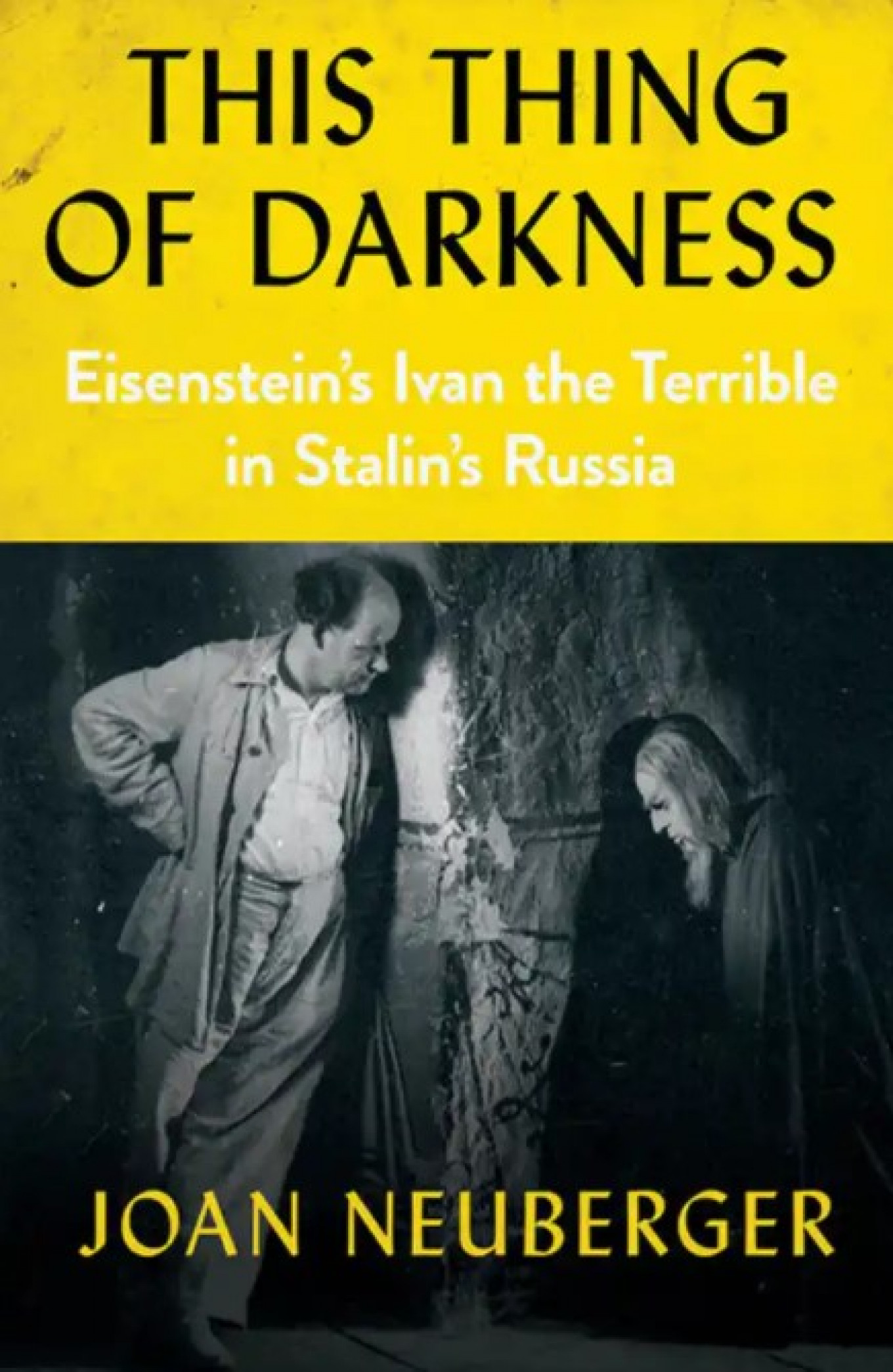
The artistic stakes are similarly high for Sergei Eisenstein in “This Thing of Darkness: Eisenstein’s Ivan the Terrible in Stalin’s Russia (Cornell University Press)," Joan Neuberger’s transcendent study of the Soviet filmmaker’s unfinished, three-part epic about the life of the sixteenth-century tsar. Neuberger has studied "Ivan the Terrible" for much of her academic career, and in this new book, she draws upon Eisenstein’s voluminous archive, letters, journals, and production notes for "Ivan the Terrible" to examine the making of the film. But she also charts Eisenstein’s risky attempt to create a powerful testimony to the evils of absolute power in his own day, in the time-honored tradition of Russian writers using fiction to express their political concerns.
As in “Stalin’s Scribe,” the Soviet generalissimo is the primary client and patron of the artist. Eager to use film to galvanize the Soviet people in the war effort, Stalin commissioned a film about a powerful leader who united the Russian people from Eisenstein. The filmmaker was already celebrated for his innovative use of montage and other ground-breaking techniques in popular films such as "October" and "Potemkin." As Neuberger notes, Stalin got a lot more than he bargained for, as Eisenstein focused on depicting the inner struggles of his hero. The young Ivan, traumatized as a child, grows up to be a strong, decisive, but paranoid ruler, who traumatizes an entire nation with political instability and his unruly band of thugs who roam about the countryside wreaking havoc.
Neuberger concludes that Eisenstein was a nuanced political thinker, which belies the accusations of toadyism to Stalin often directed at him. In Neuberger’s account, Eisenstein is an eminently gifted, creative polymath, who has the misfortune to live and work under a regime in which, as Neuberger notes, “ideals about art serving society had become the rigid guidelines of artistic institutions that were ultimately run by Communist Party Bureaucrats.”
For more information, see the publisher's site here.
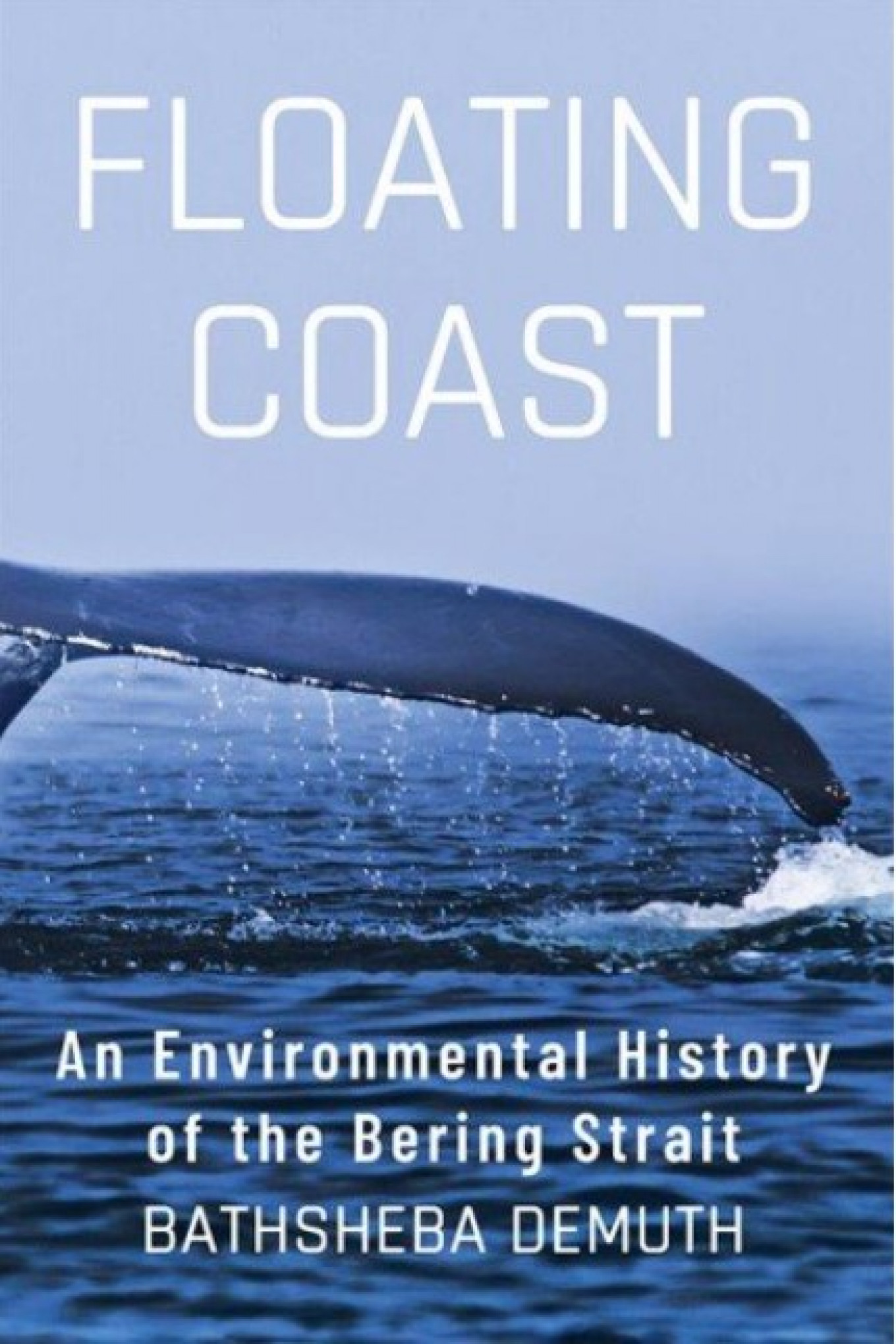
Two books on this year’s Pushkin House Book Prize shortlist examine the toll the all-consuming ambition of authoritarian states takes on the environment, and the tragic ways in which authorities either ignore or cover up this damage. Andrew Jack, Chair of the Advisory Board of the Pushkin House Prize notes that 2020 is, “the first time we have such high-quality books on issues environmental and scientific, voices far from Moscow. The nature of the publishing industry dictates what gets produced each year, but the emergence of more environmental subjects is excellent, because the whole idea of the prize is to identify, showcase, and ideally even help incentivize broader and deeper analysis of the full range of issues in the Russian-speaking world.”
“Floating Coast: An Environmental History of the Bering Strait” (W.W. Norton) by Bathsheba Demuth transports the reader to the inscrutable, ice-bound realm of the Arctic North and the people who live on either side of the Bering Strait: the Inupiat and Yupik in Alaska and the Yupik and Chukchi in Russia. But Demuth does not limit her study to just humans. In sections titled simply “Sea,” “Shore,” “Land,” “Underground,” and “Ocean,” Demuth delivers a sweeping study of all the inhabitants of this fragile ecosystem: from the algae in the sea to the reindeer on the tundra, and the walruses on the ice shoals.
Demuth’s passion for her subject permeates the book which at times can be a tough but necessary read, revealing humanity’s wanton disruption of the organic interdependencies of this fragile Arctic ecosystem. This takes place on both sides of the narrow waterway, as capitalists and communists alike seek to colonize the North, absorb her indigenous peoples into their vast empires, and exploit the riches of the land — oil (whale and petrochemical), tin, and gold — to fuel their ambitious plans for economic growth.
Drawing on local oral histories and archives, and her own extensive research, Demuth crafts an eloquent if disturbing account of a once-pristine ecosystem in peril of extinction.
For more information, see the publisher's site here.
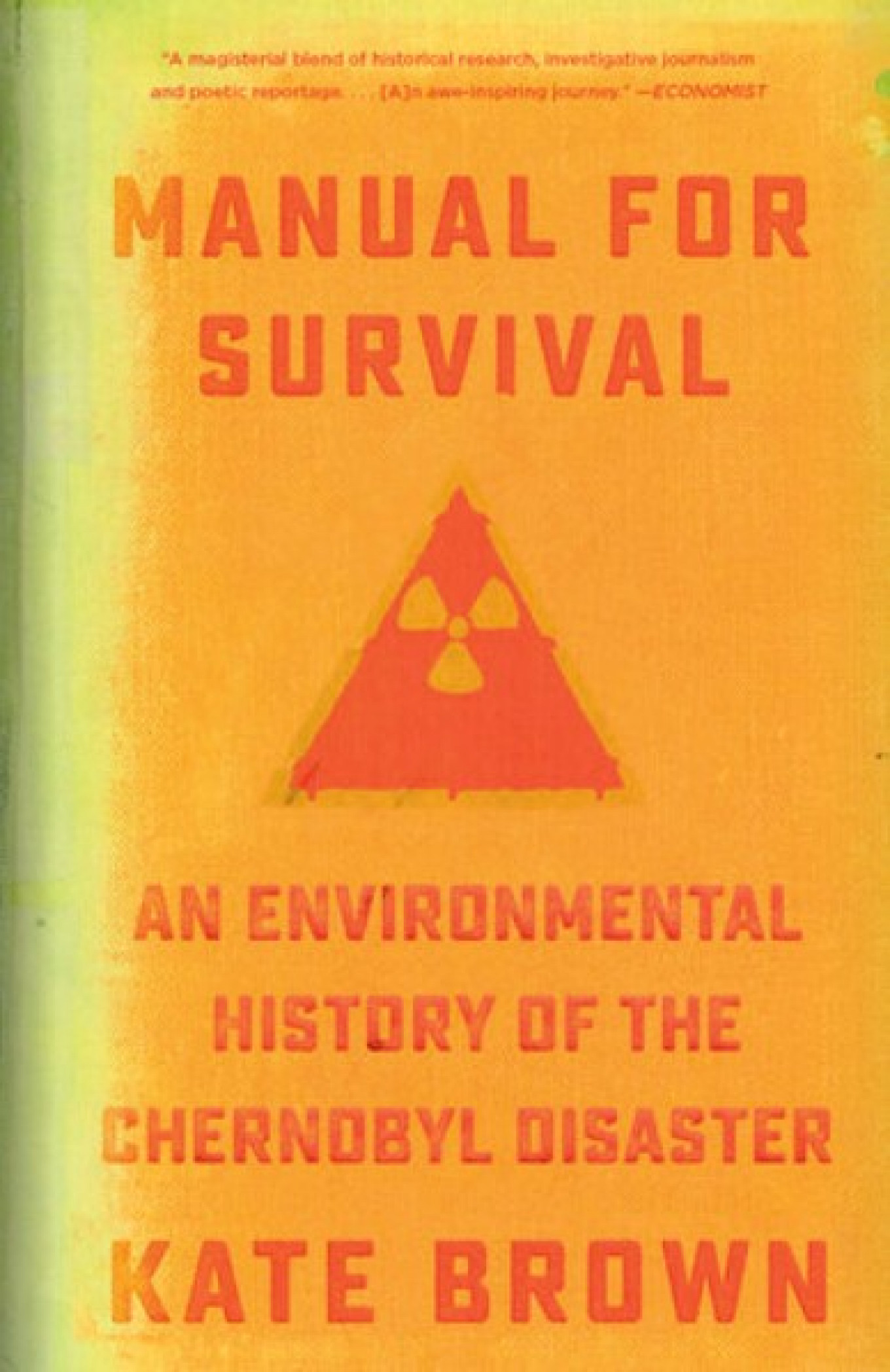
Irreparable harm to the environment is also the subject of MIT Professor of History of Science Kate Brown’s “Manual for Survival: A Chernobyl Guide to the Future”(W.W. Norton/Allen Lane), which examines anew the Chernobyl nuclear disaster of 1986. Brown takes an unflinching look not so much at the accident itself, but rather its aftermath and the lasting effects on the region’s humans, animals, plants, and the soil itself.
Brown’s research relies on personal interviews and hitherto unexamined archives on the medical consequences of the accident, and she comes to the chilling conclusion that the official death count of just 54 is missing several zeros. Brown questions the official state narrative of Chernobyl, looking beyond these whitewashed accounts to the reality hidden in the archives of small villages, oral accounts of contaminated meat trucks, and the mystifying rise in sickness at a wool factory 50 miles from Chernobyl, later explained by a consignment of raw wool from the bodies contaminated sheep, slaughtered in the zone shortly after the blast.
Just as in “Floating Coast,” there is precious little scope for optimism in “Manual for Survival,” save for Brown’s portrayal of dedicated medical workers and activists who try to tell the truth about the extent of the harm caused by Chernobyl. Both books offer timely and relevant messages for current politicians about the importance of environmental conservation and the perils of state-sponsored cover-ups.
For more information, see the publisher's site here.
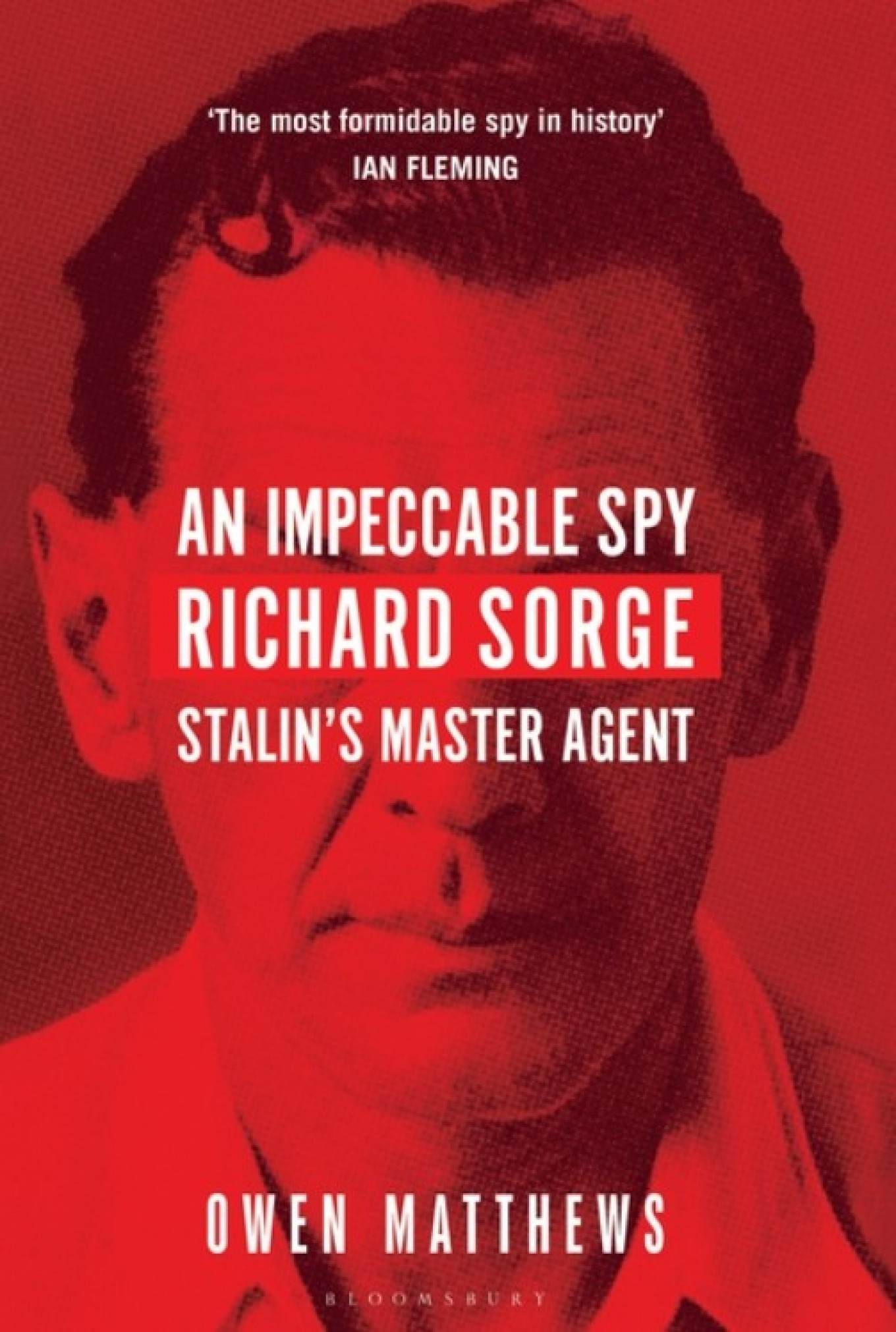
Uncovering secrets is a key theme in the last book on this year’s Pushkin House shortlist. The journalist and novelist Owen Matthews’ “Impeccable Spy: Richard Sorge, Stalin’s Master Agent,” (Bloomsbury) is a biography of Richard Sorge, an idealistic communist, born to a German father and Russian mother, who infiltrated the inner circles of power of German, Chinese, and Japanese high command in the years leading up to World War II.
Readers may well wonder why they have not heard of Sorge, whose life story reads like a Le Carré novel. Sorge is flamboyant, erudite, handsome, but also, as the book outlines, deeply flawed. Matthews suggests that Sorge is “a bad man who became a great spy,” — the title of the book comes from an admiring fellow spy for the Comintern, Kim Philby. Sorge’s best legacy may be cultural: his spy craft and aspects of his life were purloined by novelist Yulian Semyonov to create his iconic spy-hero, Max Otto Von Stierlitz, later the protagonist of the hit Soviet television series, "Seventeen Moments of Spring," which inspired a generation of KGB recruits, including a young Vladimir Putin.
Like his fictional alter ego, Sorge collected an astonishing range of intelligence, though Sorge posed not as a high-ranking Nazi officer, but rather a playboy foreign correspondent with a penchant for drinking and reckless motorcycle driving. While in Tokyo, Sorge uncovered details of Operation Barbarossa — the Nazi plan to invade the Soviet Union and the Japanese decision not to invade Siberia until Moscow had fallen. The latter intelligence ultimately helped the Soviet Union win the war, allowing the Red Army to transfer troops to the west to bolster the defense of Moscow.
The tragedy of Sorge’s life was that the higher-ups wanted nothing to do with the catastrophic intelligence about Operation Barbarossa, preferring to deliver to Stalin only the upbeat news he wanted to hear. Sorge’s intelligence, which might have saved millions of lives, was ignored, and Hitler invaded the USSR in June 1941.
Sorge’s ultimate fate is not a happy one, but since this is a biography that reads like a spy novel, we won’t give away the ending. Matthews is a masterful storyteller, that rare writer who adroitly straddles the chasm between fiction and non-fiction. The success of “An Impeccable Spy” hinges on Matthews’ use of Soviet archival material to craft a highly readable page-turner, but the book also serves as a more sobering treatise on the folly of an autocratic leader who only wants to hear certain facts, regardless of the human cost.
For more information, see the publisher's site here.
The Pushkin House Book Prize winner will be announced online on Oct. 29.
For more information about the award, see the Pushkin House site here.
To learn more about the authors and their books, see the Pushkin House Book Prize page on Facebook here.
A Message from The Moscow Times:
Dear readers,
We are facing unprecedented challenges. Russia's Prosecutor General's Office has designated The Moscow Times as an "undesirable" organization, criminalizing our work and putting our staff at risk of prosecution. This follows our earlier unjust labeling as a "foreign agent."
These actions are direct attempts to silence independent journalism in Russia. The authorities claim our work "discredits the decisions of the Russian leadership." We see things differently: we strive to provide accurate, unbiased reporting on Russia.
We, the journalists of The Moscow Times, refuse to be silenced. But to continue our work, we need your help.
Your support, no matter how small, makes a world of difference. If you can, please support us monthly starting from just $2. It's quick to set up, and every contribution makes a significant impact.
By supporting The Moscow Times, you're defending open, independent journalism in the face of repression. Thank you for standing with us.
Remind me later.



